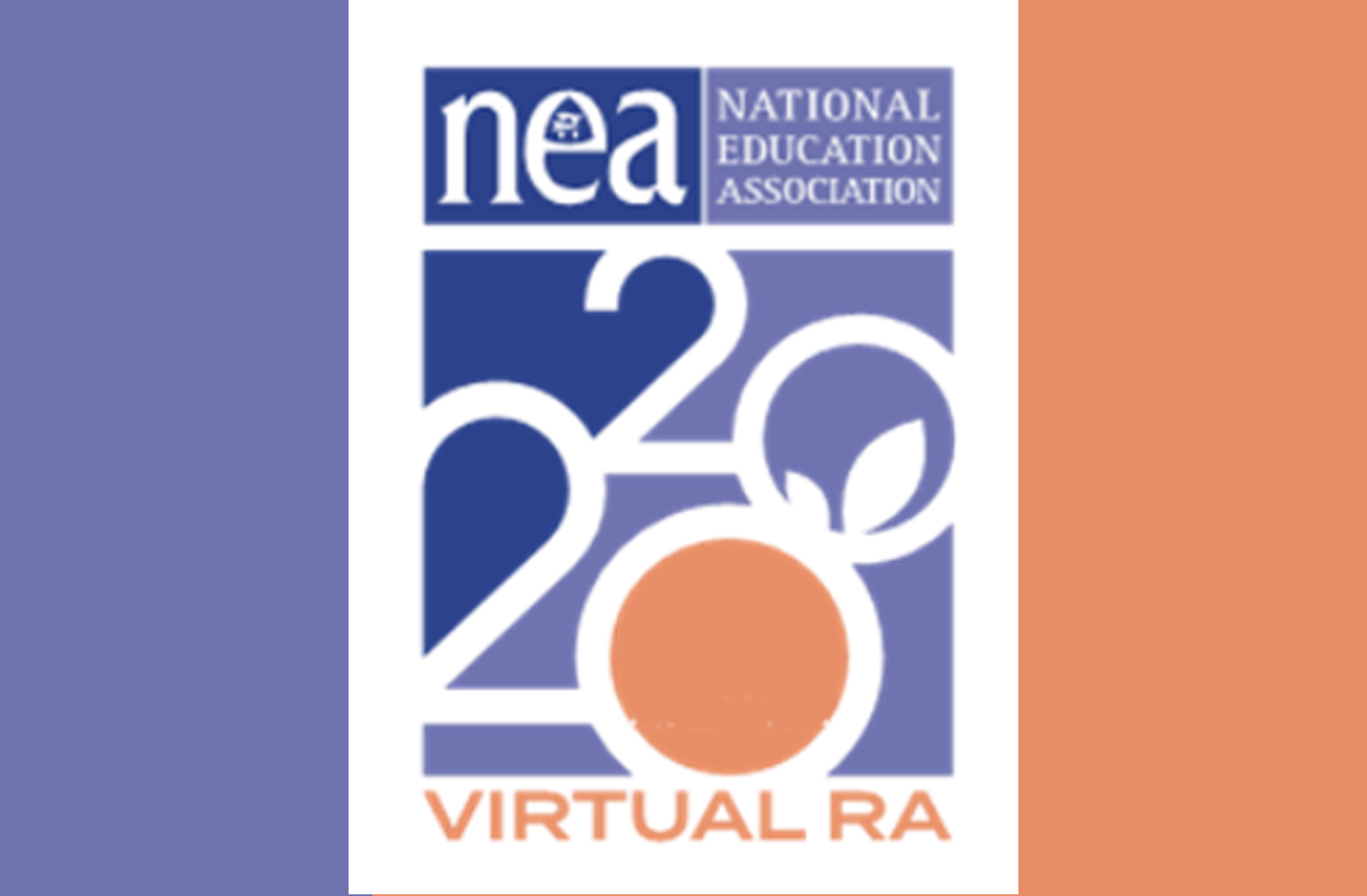This year’s National Education Association Representative Assembly, themed Our Democracy; Our Responsibility; Our time was unlike any other, as more than 7,000 delegates logged in virtually to conduct the organization’s business.
“We have masks, social distancing, and disinfectant,” NEA President Lily Eskelsen García said, referring to the podium at NEA headquarters she would be sharing only with NEA officers. “Because nothing, absolutely nothing, not even a global pandemic, is going to stop the National Education Association from doing its work.”
Because of the event’s virtual nature, no new business items were introduced this year; however, delegates did approve the NEA’s proposed budget and strategic plan for 2021, hear from a variety of speakers, and bid farewell to outgoing NEA President Eskelsen García.

NEA President Lily Eskelsen García welcomed teacher delegates to the 2020 NEA RA.
This year’s RA was unique due not only to its virtual nature but also because, more than ever before, current circumstances necessitate that teachers speak up for their students, their colleagues, and their communities, and advocate for a federal government that will prioritize public schools. To reopen schools safely, states need support from Congress and the executive branch.
“If we want a public education system that is worthy of our students, that is the engine of our economy, and the model of a just society, we have to raise our voices and we have to vote and we have to lead,” NEA Executive Director Kim Anderson told delegates.
“We are called on to act,” said Eskelsen García. “So, what will you do? What will you do for your colleagues; your students; the families you love; the communities where you live. You will be leaders in defining what democracy will look like in our country. And someday when you are asked what you did when democracy was in peril; when your country needed you — you will have a powerful answer: I was part of the collective voice and collective power that refused to be silent.”

Presidential candidate Joe Biden responded to educators’ concerns.
Presidential candidate Joe Biden also addressed delegates; listening to their concerns and answering questions about how he will support public schools as president.
“Education should be put more in the hands of educators. You should have more input on what you teach, how you teach it, when you teach it,” Biden said.
He also said that under his plan, the federal government would be mobilized to make sure states and districts have the funding to keep educators on the job in the midst of this crisis, boost funding to cover the cost of PPE, extra cleaning, and new technologies and classroom redesign. He said that he plans to scale research on how COVID-19 affects children and build a safer school best-practice clearinghouse.
“I’m going to work with educators, child care providers, unions, communities, and families on how to reopen safely,” Biden said.
Looking forward
The end of Eskelsen García’s term as president means RA delegates have to elect a new NEA president—and a new vice president and secretary-treasurer, along with new executive committee members. Delegates are submitting ballots by mail to ensure equity in participation and the security and integrity of the democratic process. Election results will be announced on August 6, 2020, or on August 31, 2020, if a runoff is required.

Preschool teacher and Kansas NEA member Tabatha Rosproy is the 2020 National Teacher of the Year.
NEA also awarded its highest honor, The Friend of Education Award, to 17-year-old climate change activist Greta Thunberg. “Greta is a rabble rouser, and she’s taking on the world for a better tomorrow,” Eskelsen García said.
2020 National Teacher of the Year Tabatha Rosproy, a preschool teacher and Kansas NEA member, talked to delegates about the need for all teachers to be involved and reflected in their union.
“During this pandemic, and through this revolution of racial equity, educator voice is more important than ever before,” Rosproy said. “You don’t join a team to sit on the bench. You join the team to get out there and play when it’s your time. And now is your time. It is time for all educators to elevate the voices of the unheard. Look around your meetings and events and make sure diverse voices are represented. Ask yourself today whose voices are we missing? Reach out to them, tell them how important their experiences are, and bring them into the fold.”







